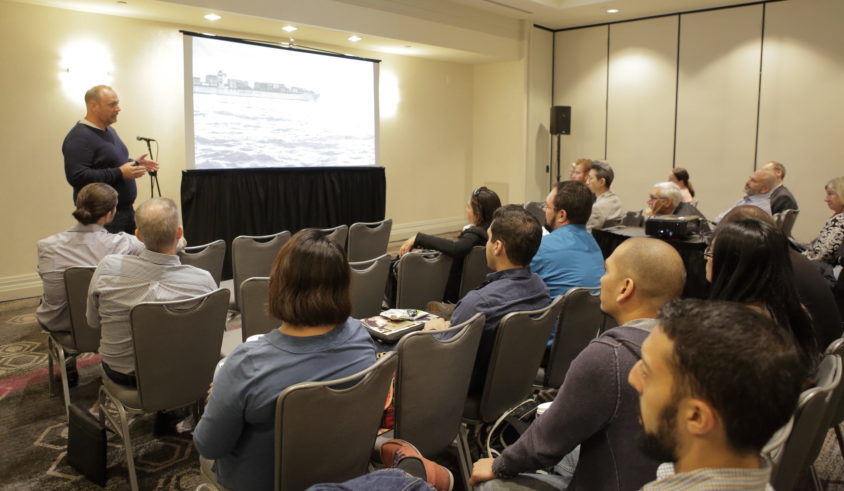HITS

GrayMeta CTO: Better Data Usage Starts with People
Story Highlights
HOLLYWOOD, Calif. — An estimated 2.5 exabytes of data is being produced in the world every day, and a full 90% of that is unstructured, according to John Motz, chief technology officer for GrayMeta. And media and entertainment companies continue to struggle with making data make sense, for a number of reasons: siloed data systems, a lack of contextual metadata, and simply an inability to properly use the data sitting in front of them.
But, speaking at the recent HITS Fall event, Motz offered an overview on how to address your potential data problem with a relatively simple idea: take a human approach, and remember that people aren’t machines.
Motz calls it “progressive disclosure,” where the most meaningful data is the focus, the data that the person needs to make the best decision for the business. Combine that with the elimination of repetitive or unnecessary data, and you’re already ahead of the game, he said.
“The easiest way to get there, honestly, is to talk with your team. The user experience needs to be progressive. [And] millennials just don’t have the patience. They will get up and leave if they can’t digest [the data],” he said.
“Give them what they need to make them comfortable. At the end of the day, if you can do this, you’ll have a great product, people will use it, and you’ll drive efficiency in your business. You don’t start at the end, you start at the beginning.”
Motz is a self-proclaimed media and entertainment outsider, but he comes from a machine learning background, and sees the same problems persisting in the M&E space:
Too much data is stuck in databases, they’re in files systems, and to move them is incredibly expensive. And that data still lacks any context. Oftentimes, people give up, and the data just goes unused, Motz said. People just can’t keep up with all the unstructured data that’s at their fingertips.
He does have some suggestions: Hire from outside your comfort zone. Be willing to adapt to new technologies. And get the people at the ground level involved in the evaluation of the product you used data to decide on.
“They’re bring a perspective you couldn’t even imagine [and] involve on the ground level. A lot of organizations make decisions at the top and push it down. You’d be surprised how [you miss things],” he said.









